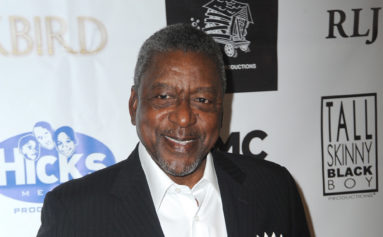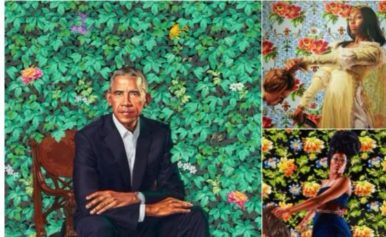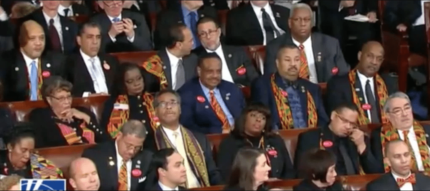Maria Verdugo, a 20-year-old graduate of the University of California, Santa Cruz, barely remembers the presidential election of 2008 — the one that spawned a youth movement that was singular in its scope and political effectiveness — except for “something about Obama saying we needed a change.”
These days, Ms. Verdugo is so busy working to pay off her student loans that she has not decided whether to register “as a Democrat, a Republican or what,” she said.
Chad Tevlin, 19, a student trying to pay for college by cleaning portable toilets in South Bend, Ind., cannot recall if he registered to vote at all. “Pointless” is how he describes politics.
And Kristen Klenke, a music student in central Michigan, has decided to skip this election altogether. “I know it sounds horrible,” said Ms. Klenke, 20. “But there’s a lot of discouragement going around.”
In the four years since President Obama swept into office in large part with the support of a vast army of young people, a new corps of men and women have come of voting age with views shaped largely by the recession. And unlike their counterparts in the millennial generation who showed high levels of enthusiasm for Mr. Obama at this point in 2008, the nation’s first-time voters are less enthusiastic about him, are significantly more likely to identify as conservative and cite a growing lack of faith in government in general, according to interviews, experts and recent polls.
Polls show that Americans under 30 are still inclined to support Mr. Obama by a wide margin. But the president may face a particular challenge among voters ages 18 to 24. In that group, his lead over Mitt Romney — 12 points — is about half of what it is among 25- to 29-year-olds, according to an online survey this spring by the Harvard Institute of Politics. And among whites in the younger group, Mr. Obama’s lead vanishes altogether.
Among all 18- to 29-year-olds, the poll found a high level of undecided voters; 30 percent indicated that they had not yet made up their mind. And turnout among this group is expected to be significantly lower than for older voters.
“The concern for Obama, and the opportunity for Romney, is in the 18- to 24-year-olds who don’t have the historical or direct connection to the campaign or the movement of four years ago,” said John Della Volpe, director of polling at the Harvard Institute of Politics. “We’re also seeing that these younger members of this generation are beginning to show some more conservative traits. It doesn’t mean they are Republican. It means Republicans have an opportunity.”
Experts say the impact of the recession and the slow recovery should not be underestimated. The newest potential voters — some 17 million people — have been shaped more by harsh economic times in their formative years than by anything else, and that force does not tend to be galvanizing in a positive way.
For 18- and 19-year-olds, the unemployment rate as of May was 23.5 percent, according to the Bureau of Labor Statistics. For those ages 20 to 24, the rate falls to 12.9 percent, compared with the national unemployment rate of 8.2 percent for all ages. The impact of the recession on the young has created a disillusionment about politics in general, several experts suggested.
“I think the lack of excitement right now is palpable enough to be a challenge to the re-election campaign” of Mr. Obama, said Peter Levine, director of the Center for Information and Research on Civic Learning and Engagement at Tufts University.
The Romney campaign intends to seize the moment, with new online and campus-based initiatives rolling out in the next few weeks, said Joshua Baca, the campaign’s national coalition director. He said the message would be simple: Mr. Obama’s economic policies are not working for young people.
The strategy? “Dorm room to dorm room” or “parent’s basement to parent’s basement, wherever they are because of the economy, that’s where we’ll be going,” Mr. Baca said. “The key to this is having a very strong volunteer base to knock on doors.”
For its part, the Obama campaign has already started outreach efforts focusing on teenagers in high school. It has organized youth rallies in swing states over the last few months and plans to be a force on college campuses in the fall.
Campaign officials expressed confidence.
“Young people know what’s at stake,” said Clo Ewing, an Obama campaign spokeswoman. “So just as they came out in huge numbers to organize and lead a movement in 2008, their energy and commitment will help build this campaign again in 2012.”
In 2008, Mr. Obama was the first to recognize the full power of the youth vote as a game changer, and his timing coincided with a political awakening among young Americans after a tumultuous period that included the Sept. 11 attacks, the beginning of the Afghanistan and Iraq wars and the government failures during Hurricane Katrina.
But since then, the mood of the country has changed. Beyond that, Republicans in several states have recently passed more restrictive election laws, which they say will fight fraud; Democrats say they will make it harder for some of their main constituencies — youths, for instance — to vote.
Mr. Tevlin, the Indiana student, said his exhaustive search for meaningful summer employment was so futile that he took a job cleaning toilets and septic tanks. “I think we’re in pretty deep trouble, and the future, as far as jobs, is not looking good at all,” he said.
A political science major, Mr. Tevlin has become more cynical over recent years. “I see lies and I hear lies, nothing gets past partisanship, and I don’t believe anything,” he said. “I think the party system is stupid.”
In the last three general elections, young voters have given Democrats a majority of their votes, according to exit polls.
Today, specifically, the youngest potential voters are more likely than their older peers to think it is important to protect individual liberties from government, the Harvard data suggest, and less likely to think it is important to tackle things like climate change, health care or immigration.
Mr. Tevlin, for instance, found the Supreme Court ruling upholding Mr. Obama’s health care law troubling.
“I don’t think the government should force you to buy anything,” he said.
Brandon Dennis is one voter who says he is open to someone new. Mr. Dennis, 20, comes from a black family of Obama supporters. But when he came of age to vote, he registered as an independent. He is listening to Mr. Romney’s appeals.
“This time, it’s more about what you’re going to do for the economy,” said Mr. Dennis, a chemistry major at Clark Atlanta University.
Vanessa Espinoza, 19, who lives in eastern Iowa, says she does care about this election but has been unable to commit to a political party. As a conservative Catholic, she sides with Republicans on issues like abortion. As a full-time factory worker without health insurance, she favors the president’s health care law, which may have finally swayed her.
Still, her endorsement is less than resounding.
“I lean a little toward Obama,” she said. “I guess.”
Source: Susan Saulny, NY Times


